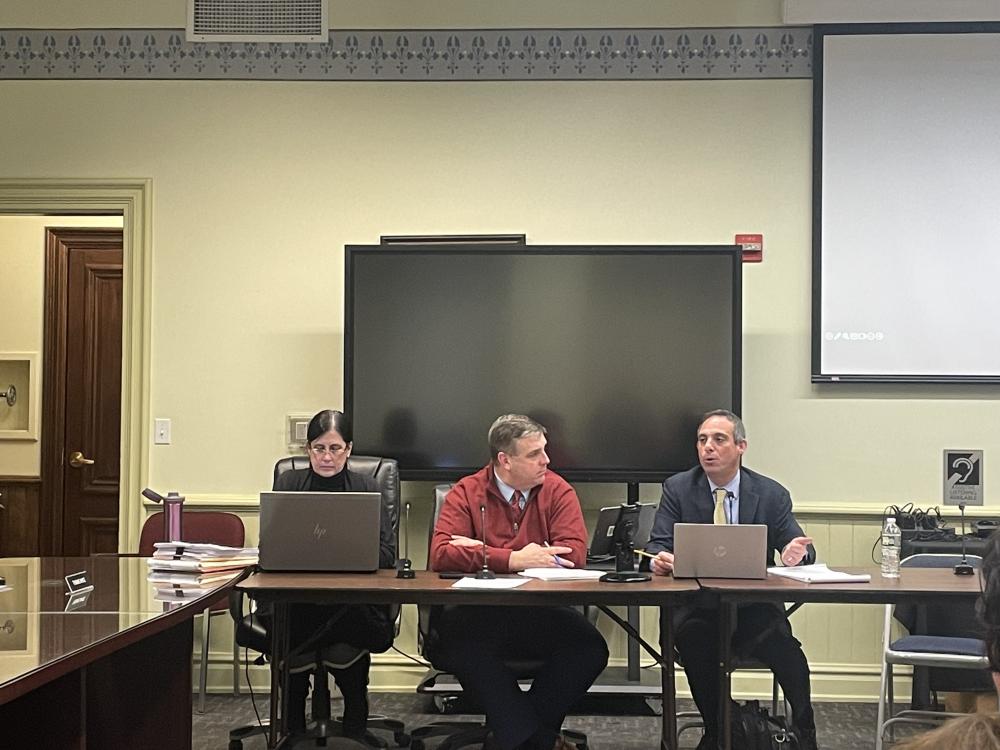Town Manager addresses presence of PFAS in Middleboro water
MIDDLEBORO — After a town-wide notification was sent to Middleboro residents about PFAS found in the East Grove Street Well in early January, Town Manager Jay McGrail announced at a Jan. 22 Select Board meeting that a plan to rid the well of PFAS has begun.
According to a Jan. 3 notification, PFAS, or perfluoroalkyl and polyfluoroalkyl substances, are man-made chemicals that have been used in the manufacturing of certain fire-fighting foams, moisture and stain-resistant products and other industrial processes.
In the fourth quarter of 2023, a monthly average of 21 nanograms per liter of PFAS6 was detected in the East Grove Street Well, according to the notification.
The notification stated that anything above 20 nanograms per liter is considered a PFAS6 violation in the state of Massachusetts.
At the Select Board’s Jan. 22 meeting, McGrail said an internal team had begun designing the East Grove Water Treatment plan.
“[The East Grove Water Treatment plan] should go out to bid for construction in the winter of 2025,” said McGrail. “This project will be brought to Town Meeting in the spring to receive approval through the water enterprise fund … this project will not be paid for by taxpayers.”
Over the past year, said McGrail, Middleboro has tested six different ways to break down PFAS.
“The decision was made to go with granulated activated carbon,” said McGrail. “This is the most commonly used method for treating PFAS and will treat Middleboro water to non-detect.”
Non-detect means that there will be no PFAS in the well.
Granulated Carbon filters are a way to remove harmful chemicals from water or air, according to the United States Environmental Protection Agency.
At a Select Board meeting on Jan. 8, McGrail said that the threshold of the amount of PFAS in water that would require residents to be notified had recently been lowered by the Environmental Protection Agency.
“No matter what the threshold is that the [Environmental Protection Agency] and [Massachusetts Department of Environmental Protection] sets, what we’re trying to do in Middleboro with our plan is to treat to non-detect, which means there won’t be any PFAS when we’re done with it,” said McGrail. “The concern associated with PFAS is based on lifetime exposure — by being able to treat to non-detect in the next year we will be able to dramatically and drastically limit the exposure to PFAS in our municipal drinking water.”
According to Ruth Kline-Robach, an outreach specialist at Michigan State University who studies community based water resources, PFAS is still a “moving target” as more research on the effects of the chemicals continues to be conducted at national and state levels.
Kline-Robach said that many states in the country are not yet monitoring the presence of PFAS.
Middleboro residents may see more notifications about PFAS in town water as the situation changes, said McGrail. He added that PFAS is an issue that could affect every town in Massachusetts, and Middleboro is ahead of the curve by addressing the issue now.











